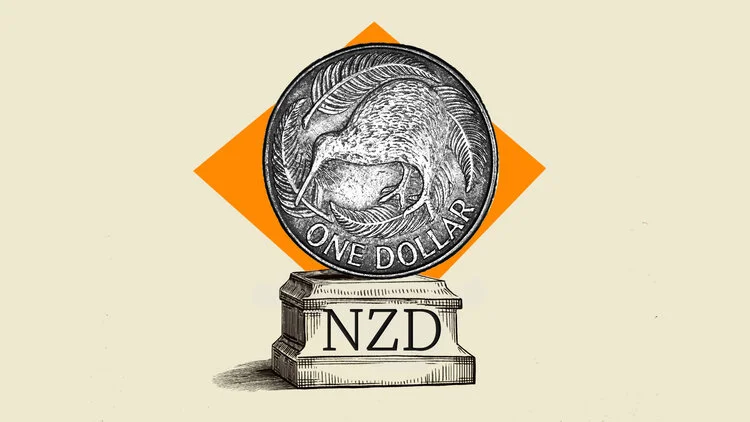At a Glance
- The NZD/USD pair is trading near 0.5755 as traders await the delayed US September CPI data and developments in US-China trade talks.
- High-level US-China trade negotiations are scheduled for Friday in Malaysia, with key officials from both countries in attendance.
- A potential agreement between US President Trump and Chinese President Xi Jinping at the APEC summit could influence the NZD/USD pair.
- The ongoing US government shutdown, now in its 24th day, could weaken the US dollar and offer support to the NZD/USD.
- Factors influencing the New Zealand Dollar include China’s economy, dairy prices, RBNZ policy, and global risk sentiment.
NZD/USD Holds Steady Amid US Inflation Data and Trade Talks
The NZD/USD pair is holding its ground near the 0.5755 level during early Asian trading on Friday. Market participants are keenly anticipating the delayed release of the US Consumer Price Index (CPI) inflation data for September, which is scheduled to be published later today. Concurrently, ongoing developments surrounding the US-China trade discussions are also under close scrutiny.
Key US-China Trade Negotiations Underway
High-level trade negotiations between the United States and China are set to commence in Malaysia on Friday, marking the fifth round of discussions. The meetings will involve China’s Vice Premier He Lifeng, along with US Treasury Secretary Scott Bessent and Trade Representative Jamieson Greer. The primary objective of this gathering is to deliberate on significant bilateral economic and trade matters.
US President Donald Trump and Chinese President Xi Jinping are scheduled to meet next Thursday on the sidelines of the Asia-Pacific Economic Cooperation summit. President Trump expressed on Wednesday his expectation to reach agreements with President Xi during their meeting in South Korea next week. Potential topics for discussion could span from resuming soybean purchases by Beijing to imposing limits on nuclear weapons. Any indication of escalating trade tensions between these two major global economies could negatively impact the New Zealand Dollar, often referred to as the Kiwi, given China’s significant role as a trading partner for New Zealand.
US Government Shutdown Creates Economic Uncertainty
The United States government shutdown has now extended into its 24th day, making it the second-longest federal funding lapse in history, with no immediate resolution in sight. On Wednesday evening, a stopgap bill backed by the GOP failed to pass the Senate for the 12th time. The vote, which fell largely along party lines with a 54-46 tally, highlights the ongoing political impasse. Concerns that a prolonged US federal shutdown could harm the US economy might undermine the strength of the US dollar and potentially create a favorable environment for the NZD/USD pair.
Understanding the New Zealand Dollar (Kiwi)
What Influences the New Zealand Dollar?
The New Zealand Dollar (NZD), commonly known as the Kiwi, is a frequently traded currency among investors. Its valuation is largely influenced by the health of the New Zealand economy and the monetary policy decisions of its central bank. However, several unique factors can also drive NZD movements. The economic performance of China significantly impacts the Kiwi, as China is New Zealand’s largest trading partner. Negative economic news from China often translates to reduced exports from New Zealand, thereby affecting the NZD. Additionally, dairy prices play a crucial role, as the dairy industry is New Zealand’s primary export sector. Higher dairy prices boost export revenues, contributing positively to the economy and, consequently, to the NZD.
Reserve Bank of New Zealand (RBNZ) Policy
The Reserve Bank of New Zealand (RBNZ) aims to maintain an inflation rate target of between 1% and 3% over the medium term, with a focus on keeping it close to the 2% midpoint. To achieve this, the RBNZ adjusts interest rates accordingly. When inflation rises above the target, the RBNZ tends to increase interest rates to moderate economic activity. This move can also lead to higher bond yields, making New Zealand an attractive destination for investors and thereby supporting the NZD. Conversely, lower interest rates typically weaken the NZD. The rate differential, which compares New Zealand’s interest rates to those set by the US Federal Reserve, is another key factor influencing the NZD/USD pair.
The Importance of Macroeconomic Data
Macroeconomic data releases from New Zealand are vital for assessing the nation’s economic health and can significantly impact the valuation of the New Zealand Dollar (NZD). A robust economy characterized by strong economic growth, low unemployment, and high consumer confidence generally benefits the NZD. High economic growth can attract foreign investment and may prompt the Reserve Bank of New Zealand to consider increasing interest rates, especially if this economic strength is accompanied by elevated inflation. Conversely, weak economic data releases are likely to lead to a depreciation of the NZD.
NZD and Global Risk Sentiment
💡 The New Zealand Dollar (NZD) tends to strengthen during risk-on periods, characterized by low perceived market risks and optimism about economic growth. This environment often favors commodities and thus commodity currencies like the Kiwi. Conversely, during periods of market turbulence or economic uncertainty, investors typically move away from higher-risk assets towards perceived safe havens, leading to a weakening of the NZD.
Expert Summary
The NZD/USD pair is trading with little movement ahead of key US inflation data and US-China trade talks. Positive developments in trade or a potential weakening of the US dollar due to the government shutdown could offer support to the Kiwi. Market participants will be closely watching these events for potential shifts in currency valuation.

